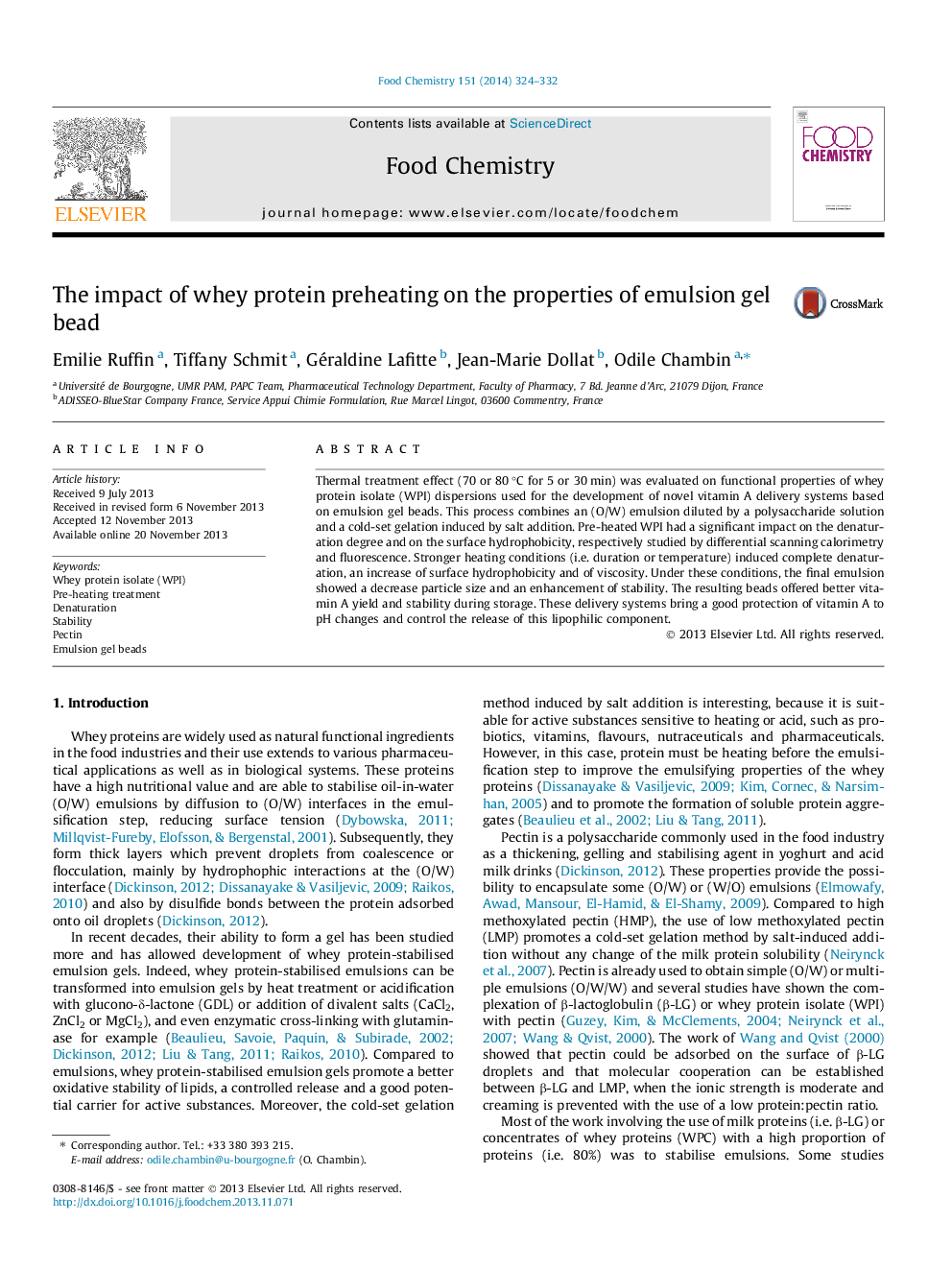| Article ID | Journal | Published Year | Pages | File Type |
|---|---|---|---|---|
| 1185226 | Food Chemistry | 2014 | 9 Pages |
•Pre-heating induced denaturation and increased surface hydrophobicity of whey protein isolate (WPI).•Stability of WPI/pectin emulsion and beads depended on the WPI pre-heating conditions.•Beads production was based on the cold-set gelation of a diluted (O/W) emulsion.•Encapsulation by WPI/pectin ensured protection of vitamin A and controlled release.
Thermal treatment effect (70 or 80 °C for 5 or 30 min) was evaluated on functional properties of whey protein isolate (WPI) dispersions used for the development of novel vitamin A delivery systems based on emulsion gel beads. This process combines an (O/W) emulsion diluted by a polysaccharide solution and a cold-set gelation induced by salt addition. Pre-heated WPI had a significant impact on the denaturation degree and on the surface hydrophobicity, respectively studied by differential scanning calorimetry and fluorescence. Stronger heating conditions (i.e. duration or temperature) induced complete denaturation, an increase of surface hydrophobicity and of viscosity. Under these conditions, the final emulsion showed a decrease particle size and an enhancement of stability. The resulting beads offered better vitamin A yield and stability during storage. These delivery systems bring a good protection of vitamin A to pH changes and control the release of this lipophilic component.
